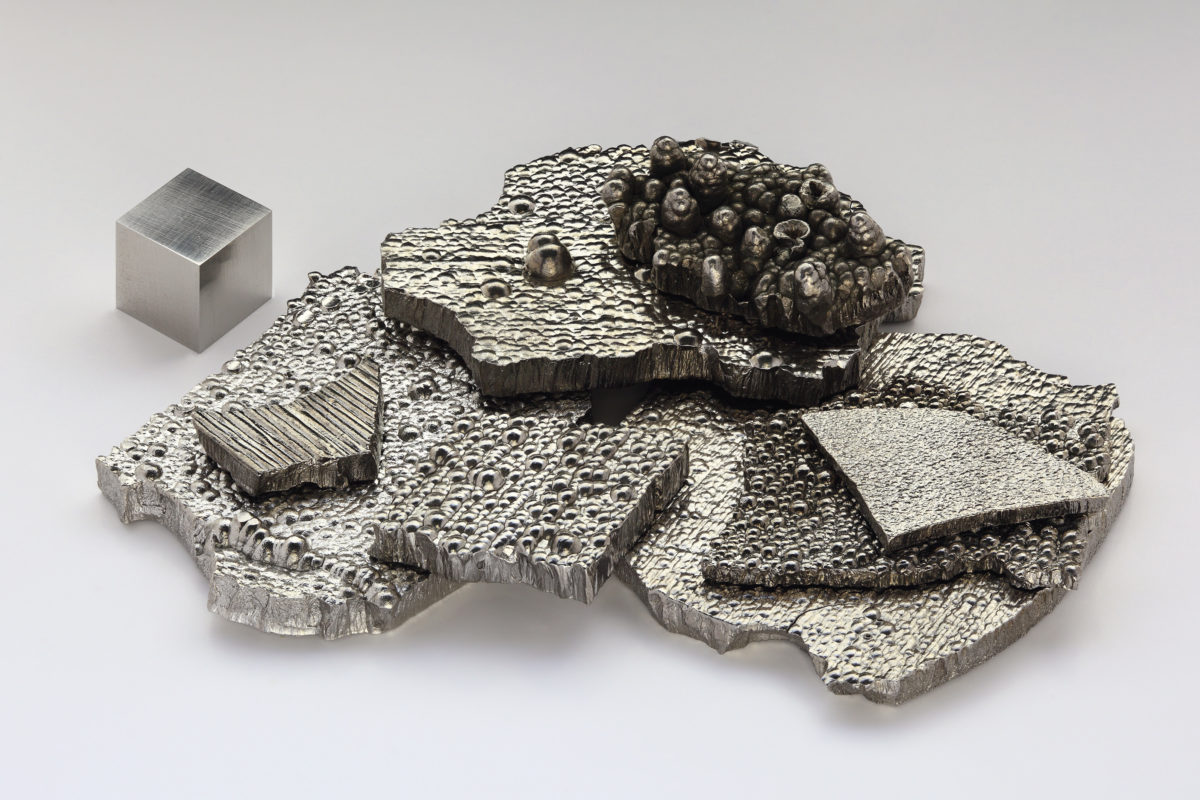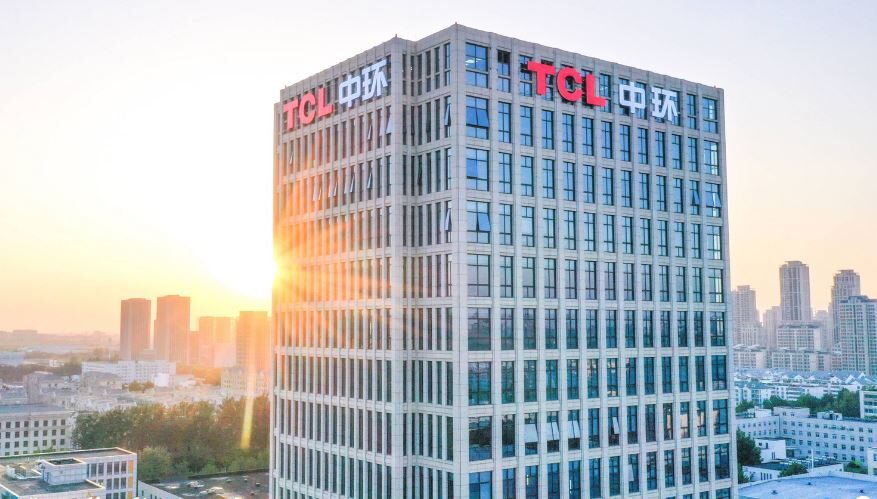Many of these challenges have been recently highlighted in a video report, which was conducted by CNN in 2018. What was discovered was a startling culture of complicity and concealment of unethical practices by those invested in artisanal mining. The camera footage exposed children mining, in unsafe circumstances and being subject to serious physical assault by security officials after discovering they had been recorded. This footage only touches the surface of the issues, since the journalists who filmed the documentary received approval from the local governor to film in this specific area.
Until now, cobalt has not yet drawn as much attention from regulators compared to other conflict minerals, examples of which include the EU’s Conflict Minerals Regulation, and the United States’ SEC Conflict Minerals Regulation focus on Tin, Tantalum and Tungsten (The 3T’s). Yet in many cases, the negative social and environmental impacts resulting from cobalt mining are far worse.
Raw material sourcing
As reported in the BBC, in a recently lodged court case, which is currently pending in the United States, family members of miners (including children) are seeking damages and compensation from Microsoft, Tesla, Apple, Google and Dell for serious injuries and death suffered by miners. The International Rights Advocates have brought the application forward on behalf of 14 families from the DRC, and claim that these tech firms were aware that the cobalt used in their products was potentially linked to child and conflict labor.
Cobalt is a significant metal. It plays a vital role in emerging technologies that create a more responsible and sustainable lifestyle for the global community. In renewable energy, cobalt is used in biogas, wind and in batteries for energy storage. Cobalt is also used in portable devices, such as mobile phones, laptops and tablets, and plays an important role in the thermal stability of rechargeable batteries that are used in electric vehicles. Benchmark Mineral Intelligence forecasts suggest that global demand for cobalt will be 300,000 tons in 2029, compared to the estimated 70,000 tons used in 2019. As we move away from heavily polluting sources of power and adopt longer term sustainable sources, the importance of responsible supply chains in cobalt grows exponentially.
Governance focused on production sites
The question arises as to whether any action has been taken to end the vicious cycle of exploitation within the cobalt market. Many have thought about and suggested what could be done on a preventative basis; for example, the impressive measures taken at Alphamin Resources site in North Kivu, DRC, which include registering artisanal miners, identifying and improving validated sites. Unfortunately, there is a general lack of action in tackling these challenges all the way through the supply chain, as they are either ‘too extensive’, or so heavily ingrained in the everyday workings of the industry that it seems there may not be an effective solution.
A number of large-scale mines have put very effective counter measures in place. These include improved infrastructure, and monitoring ‘live’ production volumes from mines to ensure that materials are not substituted in an attempt to stop unethically sourced, artisanal mined cobalt from contaminating their own ethically sourced cobalt production. These measures minimize the chance of contamination to a degree. However, there are additional methods and access points in the supply chain, such as in transport or at intermediate processing facilities, through which contamination can occur. This is especially true when there is high demand for cobalt and prices rise. The price of cobalt rose significantly from US$32,000 per metric ton in January 2017 to $94,000 per metric ton in March 2018. This increase saw more miners enter the industry.
New regulations and social expectations shift focus all the way down the supply chain
New EU regulations, which are set to come into effect in 2021, impose significantly stricter compliance obligations on all companies in the minerals supply chain. All companies, from miners to electronic goods manufacturers, will be required to (i) demonstrate that they have the correct due diligence practices in place; (ii) identify other actors in their supply chains; and (iii) verify that these other actors have also implemented the correct procedures.
Companies will be required to demonstrate that they have put in place systems and processes which elevate transparency and traceability through the entire spectrum of their supply chain, to ensure that they are able to identify, manage and report on risks at any point. The application of these requirements will have positive impacts on society. It is important to be aware that not only the EU regulations and guidelines apply to the control and oversight of all minerals. In addition to new regulations, there is also a convergence around responsible practices coming from a paradigm shift in the expectations of shareholders and customers.
Environmental, social and governance issues now drive maximizing shareholder returns and are no longer considered nice-to-have PR devices. No matter where a company is based, we live in a globally connected world where companies that don’t improve their methods for the benefit of society will eventually lose market share and pricing power. If pressures similar to those faced by tech companies in the aforementioned case pending in the United States expand to other players in the supply chain, companies may even find themselves being forced out of business unless they stand up and own their responsibility towards this issue of ethical supply chains.
The combination of regulatory obligations, and increasing customer and shareholder focus on responsible business practices are beginning to have a major effect on corporates.
Governments are increasing their clamp down on responsible minerals
U.S. and EU regulations have blazed the trail in mineral responsibility to date, but an increasing number of jurisdictions are raising their compliance requirements. In the Netherlands, for example, The Child Labour Due Diligence Act (“Act”) was published in the Government Gazette in November 2019. The official promulgation date is not yet known, however it is clear that sanctions will be imposed for failure to comply with the act. Companies may be fined up to €1 million or 10% of their annual turnover. In addition, those responsible may be held criminally liable. Any company, regardless of its country of registration, shall be required to comply with this act if it sells goods or services to Dutch end users.
Canada is also increasing its grip. In February 2020, the Canadian Supreme Court ruled that Canadian mining companies accused of irresponsible behavior abroad can be sued at home.
The consensus forming among regulators and other bodies, such as governments and NGO’s, is that the strictest of frameworks need to be followed. The recurring use of the phrase “Best Efforts” in regulation forces companies to be on the front foot when dealing with compliance. When regulators conduct audits into the origination of minerals used in a companies’ supply chains, they declare they will look for evidence that every best effort had been applied to ensure compliance.
When the “Best Efforts” regulators are looking for are centered around provenance, traceability and transparency, it is impossible to ignore emerging technologies, such as blockchain, in the industry’s solution implementation.
Blockchain: The use case for mineral supply chains
A blockchain is a list of records that is constantly growing. Once a record is added it can be neither removed nor altered. As these records are virtually incorruptible, they offer a full and transparent audit trail, which becomes very useful when applied to transparency in supply chains.
Using this technology, and applying it to supply chains, has a variety of profound outcomes. Consider the example of cobalt: The cobalt elements in a mobile phone or battery that were sold in any country around the world could be traced to a specific bag of cobalt that was produced at a mine in the DRC, Zambia or anywhere for that matter, without the concern of fraudulent activity.
Building out a supply chain using blockchain technology is not going to solve the issue of child labor directly, however it will create a transparent and immutable record of provenance. If the consumer facing companies, such as Apple, VW, Samsung and others, through the transparency brought about by blockchain, are able to ensure only materials which have a clean and transparent record are used in their supply chains, the market for unethical cobalt diminishes and could potentially be wiped out completely.
The government of DRC’s state miner Gecamines, recently announced that it would take control of all artisanal mining, allowing for more direct governance and clamping down on unsafe practices within the sector. This, if combined with the right approach to managing the supply chain downstream, could be a big win for all those involved.
No matter your place within the global supply chain, as consumer awareness continues to move in the right direction, the pressures to prove responsible activity will be sustained throughout the entire chain. With audits and regulation also moving in this direction, responsible supply chains are not something that can be escaped.
Summary
The solution to solving the challenges of conflict minerals and unethical mining practices are available and proven. They may still be somewhat unknown in our industry; however, the time is now for global supply chains from miner to end-user to take responsibility. We are at the starting point where different practices can be introduced and small wins can be celebrated.
It will take effort and coordination to solve these issues, but they are solvable with the right people, the right mindsets, the right expertise and the right technology. At SAFE, we build responsible supply chains by optimizing business processes underpinned by technologies, such as blockchain to meet these new regulations, ensuring full compliance with the EU regulations and guidelines.
About the author
Dafydd Davies has 16 years of experience trading physical commodities. After running the trading books for Trafigura in Latin America and North America, Dafydd managed risk, structured transactions and deployed capital in Africa as head of trading for the region. After Trafigura, Dafydd was responsible for global base metals trading and principal investments at Goldman Sachs. Dafydd now focuses his efforts on increasing responsible activities in the minerals space through the application of emerging technologies in the value chain and arranging capital for high impact, responsible mining projects.
The views and opinions expressed in this article are the author’s own, and do not necessarily reflect those held by pv magazine.
This content is protected by copyright and may not be reused. If you want to cooperate with us and would like to reuse some of our content, please contact: editors@pv-magazine.com.



1 comment
By submitting this form you agree to pv magazine using your data for the purposes of publishing your comment.
Your personal data will only be disclosed or otherwise transmitted to third parties for the purposes of spam filtering or if this is necessary for technical maintenance of the website. Any other transfer to third parties will not take place unless this is justified on the basis of applicable data protection regulations or if pv magazine is legally obliged to do so.
You may revoke this consent at any time with effect for the future, in which case your personal data will be deleted immediately. Otherwise, your data will be deleted if pv magazine has processed your request or the purpose of data storage is fulfilled.
Further information on data privacy can be found in our Data Protection Policy.